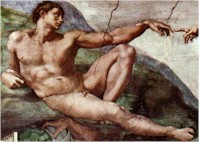Bible | Movies | Books | People | Hot Topics | Holidays | Humor | Gallery | Sanctuary | Sermons | Prayer | Quizzes | Communities | God | FAQ | Links
|
Sponsored Link |
Contrary to premature predictions that the age of AIDS would witness a winding back of the clock, and a return to the standards of behavior that prevailed in the years before the so-called "sexual revolution," now, in the opening years of the twentieth-first century, it appears that the revolution continues. According to recent surveys, 1 in 5 Americans now loses his or her virginity before the age of 13. At least one third of married men and women are having or have had an affair, lasting on average nearly a year. And religion plays no role in shaping more than half of all Americans' opinions on such issues as birth control or extra-marital sex. Whether one deals with the question of sex education for children, co-educational dorms for college students, the crisis of marriage and family life, or living arrangements at a home for seniors, at almost every point in the passage of our lives, sexuality is at issue. Not surprising then, that a survey of websites using the word "sex" or "sexuality" turns up literally hundreds of thousands of documents on this topic. Unfortunately, the vast majority, in fact almost all of these websites are pornographic in nature. That is, they reduce sex to a routine function of the body wholly divorced from any moral value or real meaning.
One might expect that as a member of the clergy, I would cry out against this transformation of the Internet into a porn shop. In fact, I'm interested in the deeper question. Why? Aside from the titillation of seeing a naked human body, and the sensation of seeing human beings engaging in actions that are private, and in some settings, forbidden, what is it that creates such a large demand to see the human body in exactly the form that God created it and doing things that God intended it to be doing? I strongly suspect that it's not so much sexual appetite that is at work here, but rather a more commercial motive. Notice that those unsolicited email messages that fill your inbox almost always deal with just two topics: money and sex. And in that order. And the two are closely related. Often the relationship is one of cause and effect. In this case, simple human greed is the cause, and sexually explicit websites are the effect. For if people see the Internet as an opportunity to make a fast buck (by exploiting others), many of the same people think sex is the quickest way to "make it." There is a profound connection in this culture between sexuality and commerce, between lust and greed. But between the two, I find greed to be the more alarming sin, and the most pervasive.
Much has been said by ministers such as myself about the materialism of our culture. But as you watch your nightly round of television commercials, or reflect upon those glossy magazine ads, or even take a critical look at the banner ads on many a website, ask yourself the question: If we are so materialistic, why is it that sex is used to promote every conceivable product under the sun? One can understand why one would find erotic undertones in advertisements for the latest fashions, nightwear or swimsuits. But really! Is it absolutely necessary to use sex in selling toothpaste, sparkplugs, or a savings account at your local bank? If we are so materialistic, why don't these products stand on their own merits? In the image of the marketplace men and women are transformed into sex objects and objects are taken as a substitute for personal value and meaning. But it is a self-defeating and self-destructive sexuality which is being expressed in this way. Whenever sex finds expression as the exploitation of one person by another, rather than the relationship between two persons as equals, then one has gone one giant step toward the destruction of the very bonds that hold the human family together. And that brings us to the alternative, to what I would call the biblical view of human sexuality. Perhaps a better word for it would be the sacramental view. It begins in the beginning with the very first chapters of the book of Genesis. In the beginning humanity was created in God's image; in the image of God they were created, male and female God created them. And God saw all that was created and indeed it was very good. Here in the imagery of the most ancient texts of the Scriptures, life is stripped to its essence. The Biblical image of creation takes us back to the simplest and most basic elements. Here in Genesis there is no radio or television; in Eden there are no superhighways or high-rise apartments, no fast-food restaurants, no Big-Mac or Burger-King. Likewise there are no schools, no hospitals or churches, no politics, no business, no organized religion. Adam and Eve were created in the image of God. There is a stark simplicity in these verses, emphasizing what is truly important. And there were two elements in the life of this man and this woman. The ties of love and affection which held them together as a couple, and the religious or spiritual ties that held them to the Creator. For Adam and Eve, sexuality and spirituality were not mutually exclusive, but rather complimentary and mutually supportive. Thus Genesis says that human sexuality is every bit as important as a modern day champion of free love would contend, but Genesis insists that the physical and the spiritual dimensions of life must work together. Jesus was building upon this same vision when he pointed out the connection between the love of God and the love of neighbor. That's why he and his disciples affirmed that marriage is a sacrament. Any relationship, if it is truly a loving relationship, is acted out in a spiritual as well as a physical dimension. Not surprising then that some of the most evocative love poetry in all literature is to be found in the book of the Bible referred to as the Song of Songs. And not surprising either that the poetry of that book has been used throughout history to describe the passionate love between two people, as well as the mystical union between God and humankind. The Christian gospel calls for a reunion of the flesh and the spirit, not the triumph of the spirit over the flesh, or vice versa. Note that in the Genesis story it was a corruption of the spiritual side of human nature that led to the fall. It was their hunger for a higher knowledge that led Adam and Eve to take the forbidden fruit, not mere physical appetite. So in biblical tradition pride is the most deadly sin, not lust. Rather than seeing a conflict between flesh and spirit, as the Greeks much later did, Genesis sees the real tragedy as the separation of humankind from God. From the opening chapters, Genesis tells the gradually unfolding story as humankind is divided against itself. Adam and Eve, Cain and Abel, the city of Sodom and Gomorrah. The original unity of flesh and spirit, God and humankind is replaced by a tragic polarity. Not only are human beings now at war with each other, but mind and body are divided against themselves. And increasingly, perversions of sexual identity are associated with perversion of the spirit. It was this double edged quality of evil that Jesus so clearly recognized. That's why he identified so openly with the so called "prostitutes and sinners." He saw so clearly that they were not responsible for the evil of the world. Jesus identified the corrupt religious leaders of his day and time as being more responsible for humanity's moral problems, for the self appointed guardians of goodness and truth defined sex as evil and thus made sinners of us all. Jesus saw that self-righteous piety is equally dangerous as promiscuity, for both these attitudes intensify the antagonism between flesh and spirit.
Today the same problem is before us. Whenever sexuality and spirituality are regarded as separate and unrelated things, then both dimensions suffer. For sex is demeaning when it is reduced to the level of a commodity, and religion is demeaning when it is a matter of dry ritual or abstract doctrine. In America today the disembodied spirituality of popular religion is locked in fateful struggle against the dispirited hedonism of the secular world. And the resolution to the conflict is not the triumph of one side over the other, but the rediscovery of what I would call the sacramental view of sex. It is in the interplay of the spirit and the flesh that we find our salvation. The real question is not the prurient question of who does what to whom and when? The truly important question is whether our relationships with other people reflect the love of justice of God. In the passing encounters and the fleeting moments, do we find values that endure. Faith, hope and love, these three, said Paul, and the greatest of these is love. But if love tends more and more toward love making, without the faith and the hope that give it depth and power, then love itself is lost. If, on the contrary, one is able to infuse one's sexual relationships with the saving qualities of mutual respect, trust, and commitment, then one moves closer to living a life which on earth becomes all that it shall be "in Heaven."
Please take a moment to let us know you
were here!
If you want to talk with someone in person, please feel free to call 917-439-2305
The Rev. Charles P. Henderson is a Presbyterian minister and is the author of God and Science (John Knox Press, 1986). Charles also tracks the boundry between the virtual and the real at his blog: Next World Design, focusing on the mediation of art, science and spirituality in the metaverse. For more information about Charles Henderson. |
Sponsored Link
|
||||||||||



